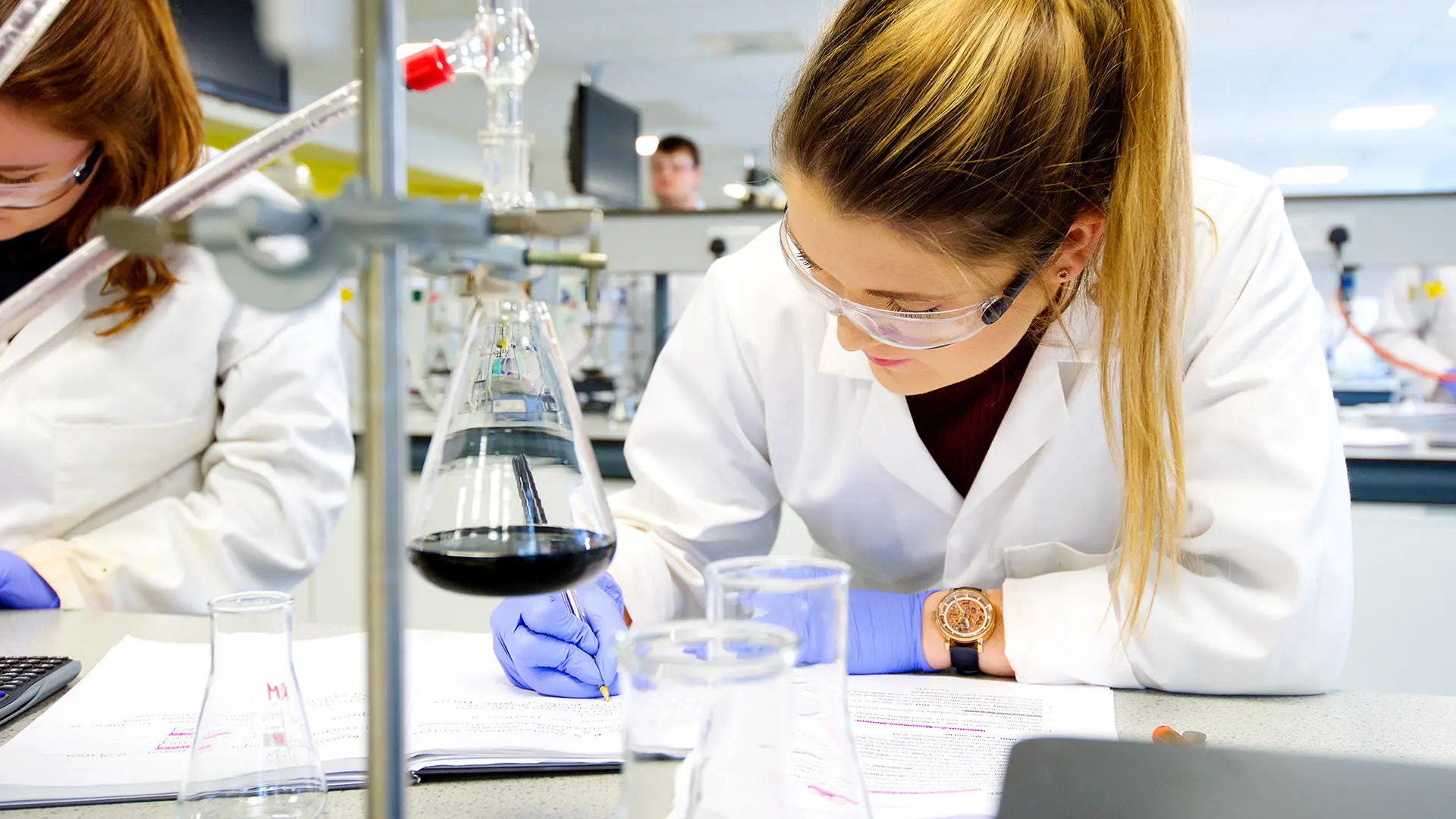The Functional Materials Group (FMG) provides a focus for the investigation of materials and their properties, with impact in healthcare technologies and the environment.
The Group’s active research themes include:
- Nanomaterials (e.g. magnetic nanoparticles and carbon dots)
- Nuclear materials (e.g. zeolites and ion-exchange materials)
- Biomaterials (e.g. lipid nanostructures and molecularly imprinted polymers)
- Organic materials (Photoactive dyes)
- Organometallics and catalysts
- Polymers
- Microwave technology
- Materials processes
- Theoretical modelling
The Functional Materials Group activities are located in purpose-built laboratories boasting a well-equipped analytical instrumentation suite.
Impact
UCLan research staff within the FMG are engaged in a number of collaborative research programmes, with international partners.
Academic collaborations include:
- University of Graz (Austria) for C-dot research;
- University of Sao Paulo (Brazil) and University of Tokyo for biomimetic materials research;
- Delhi University; Tata Institute of Fundamental Research (India); University of Manchester; Ilmenau Technical University (Germany); ECUST and Shihezi University (China) for magnetic nanoparticle research leading to water purification technologies;
- a UCLan-led consortium, including UoReading, and Kyungpook National University and Chosun University (S Korea) to develop nanostructured hybrid composites for Advanced Radioactive Waste treatment.
Industrial/Academic Partnerships leading to benefit of society and the economy include:
- Feedwater Ltd and Hosokawa Micron Ltd in water treatment and materials processing respectively.
- Partnering with organisations in China and India and Nanoscale Biomagnetics SL (Spain) leading to a nanoparticles-based technology for arsenic clean-up from ground water and producing a simple arsenic extraction kit used by local communities in groundwater-polluted states of West Bengal state, India.
- IQ-bioanalytic GmbH, Germany to produce a simple one step magnetic nanoparticles-based separation technique to replace the classical and laborious methods of separating biomolecules from cellular systems.
- University of Manchester to develop radical new reprocessing technology, significantly reducing both CAPEX costs with consequential impacts in waste treatment and disposal.
Networks:
- the UCLan Society for Functional Nanomaterials offers a forum for academic collaborations with industry and clinicians.
- the UCLan Research Centre for Smart Materials has attracted support from four Faculties and 50 academics. The Centre enables multidisciplinary teams of research-active academics to collaborate and achieve an effective and sustainable critical mass to address translational academic research. With a significant portion of work sponsored by industry, much of the research conducted by the Functional Materials Group includes commercially sensitive, patentable methods and devices.
Related Staff
- Prof Gary Bond (Catalysis and Nuclear Materials)
- Prof Harry Eccles (Nuclear Materials and Separation Science)
- Dr Mark Holden (Crystal Nucleation)
- Dr Antonios Kelerakis (Carbon nanoscience and sensors)
- Dr Chandrashekhar Kulkarni (Lipid Nanostructures)
- Dr Jennifer Readman (Nuclear Materials and Separation Science)
- Prof Subrayal Reddy (Molecularly Imprinted Polymers and Sensors)
- Dr Tapas Sen (Magnetic nanoparticles and separation science)
- Dr Rob Smith (Organic photoactive materials)
- Dr Sergey Zlatogorsky (Organometallics)

